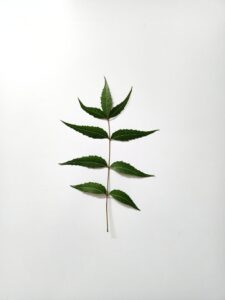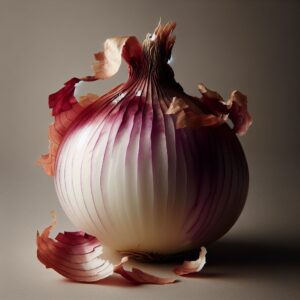
Article-at-a-Glance
-
Uncover the potential of onion juice in promoting postpartum hair regrowth.
-
Learn a simple, step-by-step guide to applying onion juice to your scalp.
-
Discover natural remedies and lifestyle changes to support hair health post-birth.
-
Understand the challenges of postpartum hair loss and how to tackle them confidently.
-
Gain knowledge on essential nutrients and supplements that can enhance hair strength.
The Science Behind Onion Juice for Hair
After childbirth, it’s common to experience hair thinning or shedding—a moment that can test your confidence. But let’s talk about a natural remedy that’s been making waves: onion juice for hair treatment. Why onion juice, you might wonder? Well, it’s packed with sulfur, known to support strong and resilient hair, and it’s believed to promote circulation to hair follicles.
Studies, albeit limited, are promising. A small research study found that participants with alopecia areata experienced significant hair regrowth after applying onion juice to the scalp. Now, this doesn’t mean it’s a miracle cure, but it’s certainly worth exploring, especially when you’re looking for a natural approach to reclaim your hair’s glory.
Most importantly, as a natural remedy, onion juice provides a chemical-free alternative that sidesteps the harsh ingredients found in some hair care products. This can be particularly appealing when you’re in the tender postpartum phase and seeking gentler options.

Step-by-Step Guide to Onion Juice Application
Here’s how you can make and use onion juice at home:
-
Start by peeling and chopping four medium-sized onions.
-
Blend the pieces into a puree, then strain the mixture to extract the juice.
-
Apply the juice directly onto your scalp, focusing on areas where thinning is most noticeable.
-
Gently massage the scalp for a few minutes to stimulate blood flow.
-
Leave the juice on for at least 15 minutes—or if you can handle the smell, up to an hour.
-
Rinse your hair thoroughly with a mild shampoo to remove the juice and its potent scent.
Consistency is key. You’ll want to repeat this process several times a week for the best chance at seeing results. And hey, don’t be discouraged if it takes a few weeks to notice changes; hair growth takes time.
Managing the Odor: Helpful Tips
Let’s face it, onion juice has a strong smell that might not be everyone’s cup of tea. But don’t let that deter you. Here are some tips to manage the odor:
-
Mix a few drops of your favorite essential oil into the onion juice to mask the scent.
-
After rinsing out the onion juice, use a fragrant conditioner or hair mask.
-
Consider applying the treatment on days when you don’t have social commitments.
Besides that, remember that the smell is temporary, but the potential benefits for your hair can be long-lasting.
Understanding Postpartum Hair Loss
After giving birth, your body goes through a whirlwind of changes, and your hair is no exception. You might find strands piling up on your hairbrush or shower drain more than usual. This is because, during pregnancy, elevated hormone levels prevent normal hair shedding. Once your baby arrives and hormone levels normalize, your body makes up for lost time by shedding more hair than usual. It’s called postpartum hair loss, and it can be quite a shock, but it’s typically temporary.
Natural Remedies to Foster Hair Regrowth
While postpartum hair loss is a natural process, there are ways to encourage your hair to grow back healthier and stronger. Natural remedies can be powerful allies in your journey back to luscious locks. They’re gentle, often cost-effective, and provide you with a sense of control during a time when so much is changing.

Essential Oils and Their Benefits
Essential oils aren’t just for relaxation; they can also be potent hair growth stimulants. For instance, peppermint oil can increase circulation to the scalp, and rosemary oil has been shown to be as effective as minoxidil, a common hair growth treatment, in some studies. Here’s how to use them:
-
Mix a couple of drops of essential oil with a carrier oil like coconut or jojoba oil.
-
Massage the mixture into your scalp for a few minutes.
-
Leave it on for at least 30 minutes or overnight before washing it out.
Because essential oils are concentrated, always dilute them with a carrier oil to avoid irritation.
Herbal Infusions for Strengthening Roots
Herbs like nettle, horsetail, and ginseng can be steeped in hot water to create a hair-strengthening infusion. These herbs are rich in minerals and vitamins that support hair health. To use, simply:
-
Steep the herbs in hot water as you would with tea.
-
Let the infusion cool, then pour it over your hair and scalp after shampooing.
-
Do not rinse; style as usual.
This herbal rinse can revitalize your scalp and strengthen your hair roots, aiding in the fight against postpartum hair shedding.
Vitamins and Supplements for Hair Health
Specific vitamins and minerals, such as biotin, vitamin E, and iron, are crucial for hair growth. While a balanced diet is the best way to get these nutrients, supplements can also be beneficial, especially if your body is running low due to the demands of childbirth and breastfeeding. Consider adding a hair growth supplement to your routine, but be sure to consult with a healthcare provider before starting any new supplement, especially if you’re breastfeeding.
Lifestyle Tweaks to Support Hair Regrowth
Alongside natural remedies, making some lifestyle changes can also contribute to healthier hair postpartum. These tweaks can nourish your hair from the inside out, ensuring that your follicles have all they need to grow strong and healthy hair.
Dietary Changes for Enhanced Hair Nutrition
Your diet plays a pivotal role in hair health. To support hair regrowth, focus on foods rich in protein, omega-3 fatty acids, and antioxidants. Incorporate lean meats, fish, nuts, seeds, and plenty of fresh fruits and vegetables into your meals. These foods will not only benefit your hair but also your overall recovery postpartum.
Stress Reduction Techniques That Help
New moms know stress all too well. However, stress can exacerbate hair loss, so finding ways to relax is essential. Techniques such as mindfulness, meditation, or gentle yoga can help manage stress levels. Even a few minutes a day can make a difference in your hair health and well-being.
The Importance of Gentle Hair Care
When dealing with postpartum hair loss, be gentle with your hair. Avoid tight hairstyles that pull on the roots, minimize heat styling, and brush gently using a wide-tooth comb. Opt for sulfate-free shampoos and conditioners, which are kinder to your scalp and hair.
Example: A mother who experienced significant postpartum hair loss shared that incorporating a weekly scalp massage with a blend of almond oil and rosemary essential oil made a noticeable difference in her hair regrowth within a couple of months.
Frequently Asked Questions
When navigating through natural remedies and lifestyle changes for hair regrowth, it’s natural to have questions. Let’s address some common ones:
How Long Does It Typically Take to See Results from Natural Remedies?
Patience is vital. It can take several weeks to a few months to notice improvements from natural remedies. Consistency and a holistic approach are crucial.
Can Onion Juice Be Used on Colored Hair?
Yes, onion juice can be used on colored hair, but it’s always a good idea to do a patch test first to ensure it doesn’t affect the color.
Are There Any Side Effects to Natural Hair Regrowth Treatments?
While natural treatments are generally safe, it’s possible to have an allergic reaction or sensitivity to certain ingredients. Always do a patch test before applying a new product to your scalp. For more information on natural remedies for postpartum hair loss, be sure to research thoroughly.
How Often Should I Apply Onion Juice to My Scalp?
For best results, apply onion juice to your scalp two to three times a week.
Should Lifestyle Changes Be Combined with Topical Treatments for Best Results?
Absolutely. Combining lifestyle changes with topical treatments can create a synergistic effect, improving the overall health of your hair and body.
How Long Does It Typically Take to See Results from Natural Remedies?
When it comes to natural remedies for postpartum hair regrowth, patience isn’t just a virtue—it’s a necessity. Typically, it can take anywhere from a few weeks to a few months to notice significant results. Hair grows in cycles, and it takes time for follicles to get the full benefit of these treatments and for new hair to become visible.
Can Onion Juice Be Used on Colored Hair?
Yes, onion juice can be used on colored hair. It’s natural and doesn’t contain the harsh chemicals that can strip color. However, it’s wise to perform a patch test first to ensure it doesn’t react with your hair dye.
Remember, the goal is to nurture your hair and scalp gently. So, if you notice any adverse effects, discontinue use. Most people find that onion juice does not affect their color-treated hair, but everyone’s hair reacts differently to natural treatments.
-
Perform a patch test on a small section of colored hair.
-
Wait for 24 hours to check for any color fading or hair reaction.
-
Proceed with treatment if there’s no negative reaction.
Therefore, even with colored hair, onion juice can be a viable option for those looking to strengthen their hair and encourage regrowth.
Are There Any Side Effects to Natural Hair Regrowth Treatments?
-
Allergic reactions to ingredients, though rare, can occur.
-
Sensitivity to strong odors, such as that of onion juice, might be unpleasant for some.
-
Overuse of essential oils without proper dilution can lead to scalp irritation.
While natural treatments are generally considered safe, they’re not without potential side effects. As with any new treatment, start slowly and pay attention to how your body responds. If you notice any irritation or adverse effects, it’s best to stop the treatment and consult a healthcare provider. For more information on natural remedies and their potential side effects, read our article on chamomile and its natural benefits for postpartum hair loss.
And remember, the skin on your scalp is just as sensitive as the skin on the rest of your body. So, treat it with the same care and consideration you would give to any other part of your skin.
Most importantly, listen to your body. It will often tell you what’s working and what’s not.
How Often Should I Apply Onion Juice to My Scalp?
To reap the potential benefits of onion juice for hair regrowth, aim to apply it to your scalp two to three times a week. This frequency allows the scalp to absorb the nutrients from the juice without overwhelming it.
Consistency is crucial for seeing results, so try to incorporate it into your routine. For example, you might apply it every Monday, Wednesday, and Friday to keep a regular schedule.
Remember to follow each treatment with a thorough rinse and a mild shampoo to remove the juice and minimize any lingering scent.
-
Apply onion juice two to three times a week for best results.
-
Be consistent with applications to maintain a steady supply of nutrients to the scalp.
-
Rinse well and shampoo after each application to keep your scalp clean and odor-free.
By following this regimen, you’ll give your hair the best chance to bounce back postpartum.
Should Lifestyle Changes Be Combined with Topical Treatments for Best Results?
Definitely. Topical treatments like onion juice can be much more effective when combined with positive lifestyle changes. This holistic approach ensures that you’re not only treating your hair from the outside but also nurturing it from the inside.
For instance, eating a balanced diet rich in hair-friendly nutrients, managing stress, and practicing gentle hair care all contribute to the overall health of your hair. When your body is well-nourished and cared for, it’s better equipped to support hair regrowth.
So, while you’re applying onion juice or other natural remedies to your scalp, don’t forget to take care of the rest of you as well. It’s all connected, and when you feel good, it shows—right down to your very last hair strand.


